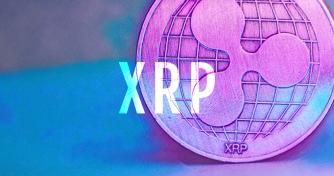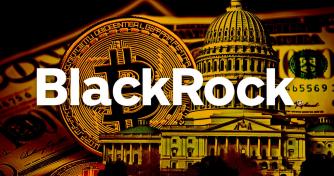The U.S. Federal Deposit Insurance Corp. (FDIC) has issued a cease and desist letter to OKCoin, warning the exchange about misleading statements regarding its insurance status.
In a June 15 letter, the FDIC alleged that the exchange and its senior executives made false representations stating or suggesting that certain crypto-related products were FDIC-insured.
The agency ordered the exchange to remove these claims from its website, social media accounts, marketing materials, mobile app, and any other customer-facing publication within 15 business days and provide written confirmation of compliance.
FDIC deposit insurance protects customers by providing coverage for their deposits in the unlikely event of the failure of an FDIC-insured bank. The federal agency insures customers’ deposits of up to $250,000 in registered banks, providing a safety net in case of bank failures. However, it does not cover digital assets deposits.
FDIC cites instances of misrepresentation
The agency cited three instances of misleading statements made by OKCoin concerning its insurance status. These included a blog post advertisement where the exchange claimed it was licensed across the U.S. and its accounts had FDIC insurance.
Another instance cited by the regulator involved the exchange’s statement that the Provenance Blockchain, and its HASH utility token, which is available from OKCoin, have received regulatory approval from SEC, OCC, FED, and the FDIC.
In the third instance, OKCoin’s Chief Marketing Officer tweeted that OKCoin offers FDIC insurance on USD deposits.
According to the FDIC, these statements contain false and misleading representations regarding FDIC deposit insurance and could mislead customers.
“OKCoin is not FDIC-insured and the FDIC does not insure non-deposit products. By not distinguishing between U.S.-dollar deposits and crypto assets, the statements imply FDIC insurance coverage applies to all customer funds (including crypto assets). In addition, the FDIC does not insure or endorse particular blockchains.”
An OKCoin spokesperson told CryptoSlate that:
“A core principle at Okcoin is to respect applicable laws and regulations, and we remain committed to collaborating with stakeholders including regulators whenever possible. Okcoin is aware of this matter and is taking immediate action to assess the statements flagged by the FDIC and address them as necessary.”
In 2022, the FDIC issued similar notices to FTX.US and Voyager Digital.
Updated with OKCoin’s statement on June 16 at 16:25 UTC.
Latest Okcoin Stories
Disclaimer: Our writers' opinions are solely their own and do not reflect the opinion of CryptoSlate. None of the information you read on CryptoSlate should be taken as investment advice, nor does CryptoSlate endorse any project that may be mentioned or linked to in this article. Buying and trading cryptocurrencies should be considered a high-risk activity. Please do your own due diligence before taking any action related to content within this article. Finally, CryptoSlate takes no responsibility should you lose money trading cryptocurrencies.
Coinbase said in a June 15 tweet that it now offers 4% rewards on USDC.
Coinbase’s newly increased reward rate means that the company has approximately doubled its previously offered returns on USD Coin (USDC).
As recently as June 9, the company’s website said that customers could only earn 2% on USDC purchased or held in a Coinbase account.
Coinbase said today that reward rates are subject to change and noted that the most up-to-date rates can be viewed within customer accounts. The company has not added the 4% reward rate to the latest version of its public USDC page.
The reward program’s requirements — such as eligible regions, minimal USDC balances, and account requirements — can be viewed on Coinbase’s help pages.
USDC rewards not named in SEC case
Recently, the SEC charged Coinbase and alleged that several of its activities violate securities offerings. In one charge, it said that Coinbase’s staking service, which allows users to earn interest on cryptocurrency, constitutes an unregistered securities offering.
Coinbase’s page distances USDC rewards from the targeted services, stating: “You cannot stake USDC, but … may be eligible to earn rewards on USDC.”
Though the SEC did not target the company’s USDC reward program in its latest case, the regulator prevented Coinbase from launching its similar Lend program in 2021. That program would have seen Coinbase lend out users’ USDC in order to provide rewards to users; it incidentally intended to offer 4% APY interest as well.
However, Coinbase finances its USDC rewards program with its own funds. Coinbase is a member of the CENTRE consortium, which is responsible for USDC.
Latest Bitcoin Stories
Disclaimer: Our writers' opinions are solely their own and do not reflect the opinion of CryptoSlate. None of the information you read on CryptoSlate should be taken as investment advice, nor does CryptoSlate endorse any project that may be mentioned or linked to in this article. Buying and trading cryptocurrencies should be considered a high-risk activity. Please do your own due diligence before taking any action related to content within this article. Finally, CryptoSlate takes no responsibility should you lose money trading cryptocurrencies.
The link between US Treasuries, the dollar-yen carry trade and Bitcoin
CryptoSlate's latest market report dives deep into the connection between the Japanese yen and U.S. Treasuries and its potential impact on Bitcoin.


















